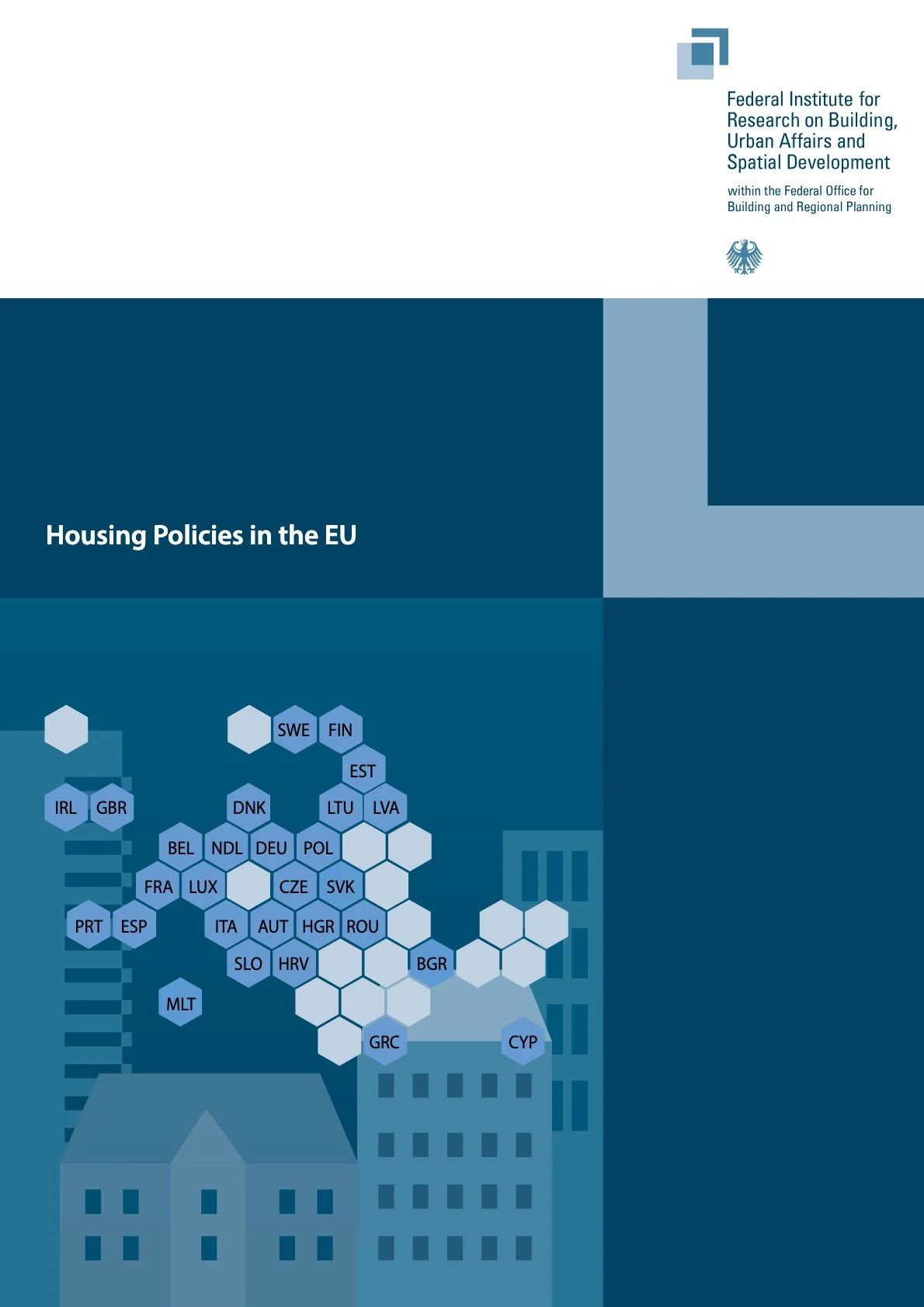AI-Generated Summary
Context and Publication
The document titled "Housing Policies in the EU" is published by the Federal Institute for Research on Building, Urban Affairs and Spatial Development (BBSR) in Germany. The research aims to provide a comprehensive overview of housing policies across EU member states, examining the challenges posed by climate change, urbanization, and demographic shifts. The authors include experts from various institutions, ensuring a collective insight into the subject.
Overview of Housing Policies
Housing policy is a crucial area for all EU member states, significantly impacting citizens' quality of life. The study analyzes diverse national policies and responses to contemporary challenges, highlighting the variation in housing supply systems among member states. These systems range from balanced rental and ownership markets to those dominated by owner-occupied housing.
Key Findings
The research identifies four main groups of housing systems in Europe: 1. Diversified systems with a balanced relationship between rental and owner-occupied markets. 2. Two-tier systems primarily characterized by owner-occupied housing but with some rental options. 3. Owner-occupation dominated systems with minimal rental markets. 4. Highly concentrated owner-occupied systems where rental housing is scarce. Each group shows distinct patterns in housing policies and responses to supply and demand dynamics.
Policy Instruments and Challenges
The study outlines various policy instruments employed by EU countries, including housing allowances, subsidies for homeowners, and rent regulations. It also reveals significant challenges, such as rising housing costs, inadequate supply of affordable housing, and issues related to energy efficiency. Most countries report serious concerns regarding urban rent increases and the lack of barrier-free housing, especially for the elderly.
Housing Stock and Quality
The age and quality of the housing stock are pivotal in understanding the need for modernization. Many member states face challenges related to energy efficiency and the refurbishment of older buildings, particularly those constructed between the 1960s and 1980s. The report emphasizes the importance of sustainable housing practices to address these issues effectively.
Environmental Considerations
Energy efficiency emerges as a significant driver for housing policy across the EU, with most member states acknowledging its importance. This focus aligns with broader environmental goals aimed at reducing carbon footprints and improving sustainability in housing.
Economic Implications
The financial crisis of 2008 continues to influence housing markets, affecting accessibility to homeownership and rental options. The report highlights that many countries have seen a shift towards increased rental demand due to affordability challenges in owner-occupied housing.
Conclusion
The findings from this comprehensive study provide valuable insights into the varying landscapes of housing policies across the EU. By examining national responses to shared challenges, the study encourages a dialogue on sustainable housing solutions that can enhance the quality of life for all citizens in the European Union.
